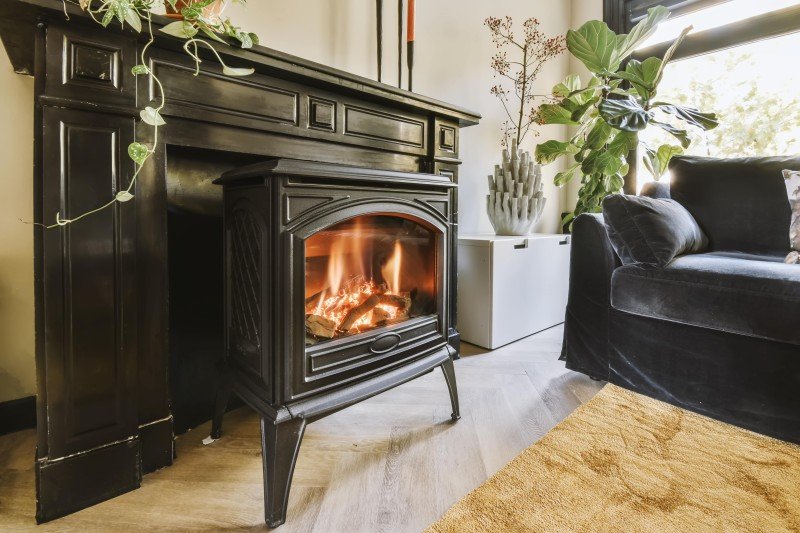Multi Fuel Stoves for Sale: A Comprehensive Guide
Multi fuel stoves have gotten increasing popularity for many years due to their flexibility, efficiency, and aesthetic appeal. please click the up coming post can burn different types of fuel, such as wood, coal, and biomass, enabling house owners to select the most cost-efficient and environmentally-friendly option based on their needs. This short article intends to supply an in-depth overview of multi fuel stoves, their benefits, considerations for acquiring, various types offered, and answers to often asked questions.
The Benefits of Multi Fuel Stoves
Multi fuel stoves use a series of benefits for homeowners wanting to enhance their heating solutions. Some of the key advantages include:
- Versatility: The ability to use various fuels allows house owners to adjust to changing scenarios, such as varying fuel costs or schedule.
- Cost-effectiveness: Depending on regional fuel prices, users may find cost savings by burning less expensive fuels like wood or coal.
- Environmental Impact: Many multi fuel stoves produce lower emissions than traditional heating systems, especially when utilizing sustainably sourced biomass.
- Visual Appeal: Multi fuel stoves add a touch of warmth and charm to any living space, creating a cozy environment.
- Efficiency: Modern multi fuel stoves are designed to make the most of combustion and heat output, offering an efficient heating option for homes.
Kinds Of Multi Fuel Stoves
When considering a multi fuel range, it's crucial to understand the different types readily available on the market. Below are some typical classifications:
| Type | Description | Common Fuel Sources |
|---|---|---|
| Wood Burning Stoves | Specifically designed for burning wood logs and pellets. | Logs, wood pellets |
| Coal Stoves | Stoves optimized for burning coal, offering high heat output. | Anthracite, bituminous coal |
| Pellet Stoves | Use compressed pellets made from wood or biomass, efficient burning. | Wood pellets, biomass pellets |
| Combination Stoves | Capable of burning both wood and coal, providing flexibility. | Wood, coal |
| Biofuel Stoves | Created to burn liquid biofuels, promoting sustainability. | Bioethanol, biodiesel |
Factors to consider for Purchasing a Multi Fuel Stove
Before purchasing a multi fuel stove, there are a number of aspects to take into consideration to make sure the chosen design satisfies heating needs and choices. Here are some important considerations:
- Size and Capacity: Evaluate the heating requirements for the area and pick a stove with the suitable output. Contemporary Fireplaces USA is generally determined in kilowatts (kW).
- Efficiency Ratings: Look for stoves with high efficiency rankings, which represents much better fuel usage and minimized emissions.
- Material and Build Quality: Opt for stoves made from resilient products such as cast iron or top-quality steel that can endure heats.
- Price: The budget plays a significant function in decision-making. Think about both the upfront cost and continuous fuel expenses.
- Installation: Some designs may require professional installation or specific flue systems. Check local policies and codes for compliance.
- Visual appeals: Consider the style and surface to guarantee it complements your home décor.
FAQs About Multi Fuel Stoves
1. Can I use any kind of fuel in a multi fuel stove?
Multi fuel stoves are designed to utilize specific types of fuels. Constantly refer to the maker's standards to understand which fuels work.
2. How do I preserve my multi fuel stove?
Regular maintenance includes cleaning the flue pipeline, looking for obstructions, and checking seals and gaskets. Following the manufacturer's upkeep schedule is necessary for security and efficiency.
3. Are multi fuel stoves safe to use?
Yes, when effectively set up and kept, multi fuel stoves can be a safe heating option. It is important to follow security guidelines and guidelines for setup.
4. Do I require a chimney for a multi fuel stove?
Yes, a lot of multi fuel stoves require a chimney or flue system to vent smoke and gases outside the home. Make sure that the system is set up according to regional building regulations.
5. What is the typical life expectancy of a multi fuel stove?
With correct maintenance, a sturdy multi fuel range can last anywhere from 15 to 25 years, depending on usage and care.
Multi fuel stoves use a flexible and efficient heating option for house owners, allowing them to choose their preferred fuel type based upon expense and schedule. By thinking about the various kinds of stoves, their advantages, and factors to think about when buying, people can make informed decisions that will boost their home's comfort. With a broad range of alternatives readily available, prospective buyers should do extensive research, taking into consideration the range's efficiency, fuel compatibility, and overall design to discover the very best suitable for their needs.
In conclusion, while multi fuel stoves can look like a big investment, their adaptability and efficiency make them a beneficial addition to any home. Whether it's for additional heating or as the primary source of heat, a multi fuel range offers a practical service for the modern property owner aiming to stabilize convenience with sustainability.

